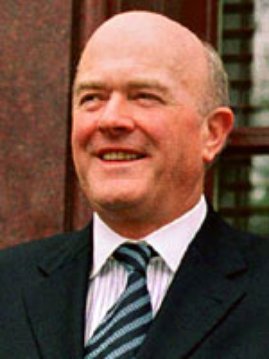Brendan Burgess of askabout money has asked me to clarify further some issues in relation to this, arising out of the discussion on his website. I do so below, and I am taking the opportunity to address some other issues that have been raised elsewhere.
The Moral Position
There is no disagreement on this, I think. Neither Jim Flavin, Bill Shipsey, Brendan Burgess, the High Court nor I have ever suggested that it is morally acceptable for someone in possession of inside information to profit from trading on it. When Fennelly J. said in the passage that has been quoted so often and so tendentiously
To trade on the use of inside information is recognised for what it is...a fraud on the market.
he was not announcing a decision on a matter in controversy.
The High Court had found that Mr Flavin did not trade on possession of the information. The Supreme Court was not asked to re-assess that finding, and expressed no opinion upon it.
What has caused some confusion is that the law in force at the time (but repealed even before the trial) required no connection between possession of the price-sensitive information and the decision to engage in any transaction, so that one could contravene the law without being in the wrong "morally".
The Factual Position
There is very little, if any, disagreement on this,either.
The case that Mr Flavin and his company, DCC, lost was a claim by Fyffes that the sale by DCC of its shareholding in Fyffes had taken place in breach of section 108 of the Companies Act, 1990, and that damages were due as a result. It was not a criminal prosecution. For Mr Flavin's side, the possible outcomes were:
- A. Successful resistance to Fyffes' claim
- B. Be held to have breached s.108 and to become liable for €42 million
Mr Flavin had seen Fyffes' internal trading accounts for November & December 1999, knew that they were disappointing and did not overlook their potential significance (such as it was). He took legal advice before the share sales were completed in February 2000. The advice was that the information was not price-sensitive. The High Court agreed that it was not, but the Supreme Court differed. I repeat that this was the only decision the Supreme Court took. However, it was sufficient to transform outcome A into outcome B i.e.success into failure for Mr Flavin.
The Director of Corporate Enforcement, like the media and, it has to be said, many independent commentators in academia and elsewhere, was of the view that the trial had exposed potential wrongdoing over and above the s.108 breach. Against the robust opposition of DCC, he persuaded the High Court to appoint Mr Shipsey as an Inspector with powers to obtain testimony on oath from Mr Flavin and from others (including some significant witnesses who had not been called to testify during the trial). The Inspector was then to report on his findings and to recommend further action if he found it appropriate.
His report is what has sparked the current discussion. The report vindicated Mr Flavin and recommended that no further action be taken. Paul Appleby, Director of Corporate Enforcement, did not have to accept this, but he did, as did the High Court.
Discussion
Neither Mr Flavin, the High Court, Bill Shipsey, Brendan Burgess nor I have said, or suggested, that the result in the Supreme Court should be ignored or set aside. It hasn't been: the €42 million has been paid.
There is no finding of
either High or Supreme Court that has been flouted in this case, and Mr Shipsey's report in no way over-rules any court decision. What it does is to correct the verdict of media opinion. Unlike the latter, the quality of the investigation and analysis is high.
It seems to me that the critics want to mis-interpret the Supreme Court and to pick-and-choose from the findings of the High Court, all the while coruscating Bill Shipsey on the basis of the false, indeed ridiculous, allegation that he has done the same.
This is impudence of a high order, reflective of a pernicious "group-think" that cannot tolerate its rash pre-judgements being exposed as invalid. The same group-think is already indicating that it will not accept the results of any inquiry into the Bank/Economic/Financial Crisis unless they endorse the verdicts already pronounced by the gurus of the moment.
I have not addressed all questions arising in this controversy yet, and will post again before the weekend.
 Saturday, February 13, 2010 at 04:23PM
Saturday, February 13, 2010 at 04:23PM 

